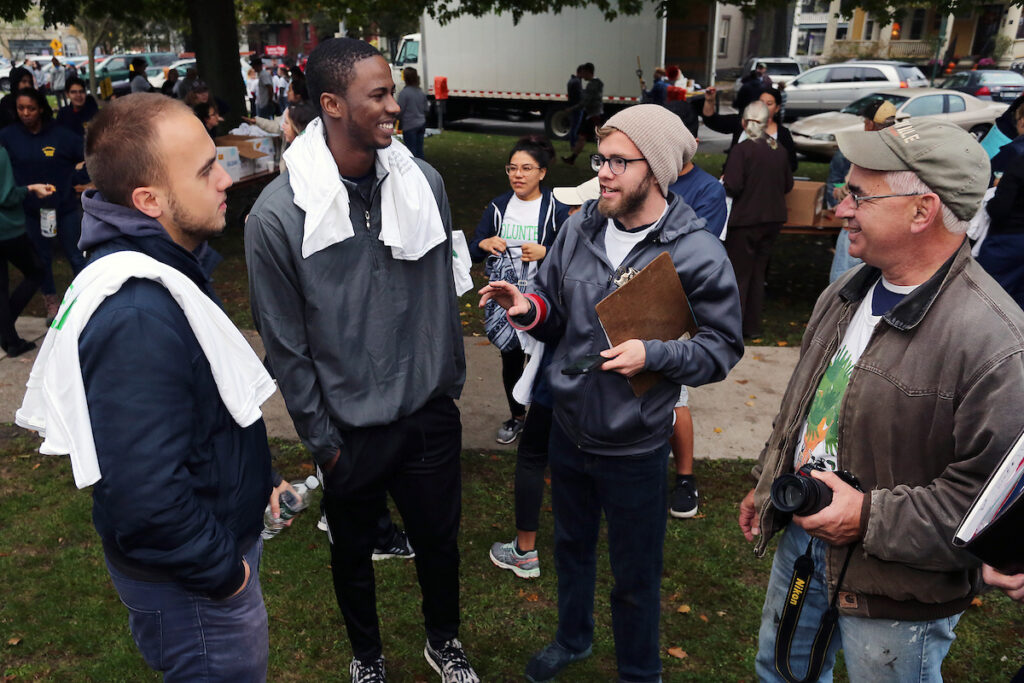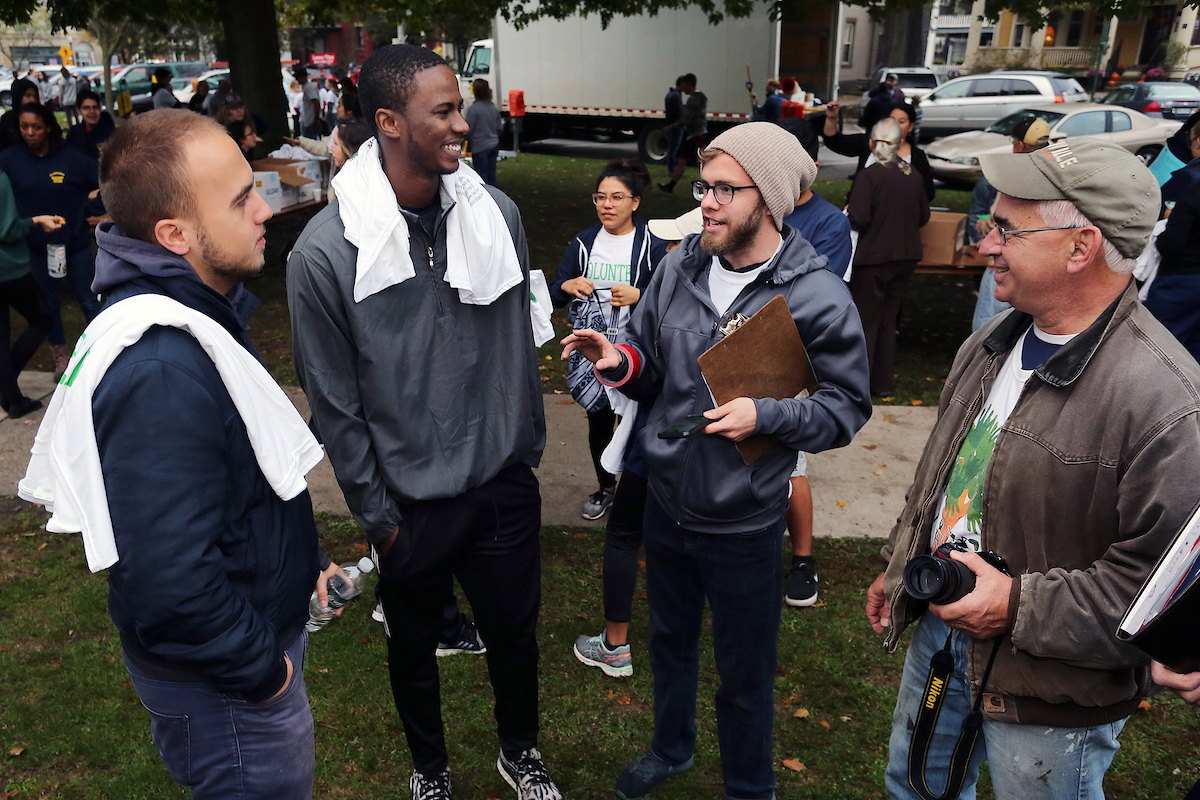
Allegheny College has taken two of its most successful civic-engagement programs and merged them into a single initiative designed to impact the Meadville region through community-based projects addressing economic development and educational preparedness.
The Davies and Fahrner Civic Impact Scholars program is a new, expanded and combined version of the Davies Community Service Leaders program and the Fahrner Summer Network program.

Community service is a cornerstone of an Allegheny College education as seen in this file photo from Make a Difference Day in 2017.
“The decision to merge the Davies program and the Fahrner program to create the Civic Impact Scholars program strategically combines the strengths of each of these longstanding programs,” said David Roncolato, Allegheny’s director of civic engagement. “This new initiative is enthusiastically supported by the donors and aligns with President Hilary Link’s vision to increase local impact.”
The program, coordinated with the College’s Office of Admissions, will recruit a 10-student cohort per incoming class, seeking students who are committed to ongoing engagement in the Meadville area while attending Allegheny. Those accepted into the cohort receive a one-time, $1,500 scholarship. During the academic year, Civic Impact Scholars hold off-campus jobs through work-study or campus employment and enroll in a one-credit seminar on related topics with their cohort for the first four semesters.
Then, in their first summer, students will commit to a 10-week internship in the Meadville area, receiving pay for work and funding for housing. In one subsequent summer, students will secure a position on a community-based research project with a faculty member and partner through the Gateway Network Program or other avenues.
“The Civic Impact Scholars program is unique because it brings in a group of students who come into Allegheny with special interests in economic development, entrepreneurship education and preparedness,” said Bethany Ozorak, the Davies and Fahrner assistant director for community-based projects.
“It brings together students who have the specific interests and the specific drive to make a difference, to learn about the community, to learn about civic engagement. They learn from each other and get ideas from each other. And while they’re learning, they’re developing their own interests in what they want to do with their lives, and they’re also making a difference in the place that they’re living.”
The program will focus on projects in the area of education preparedness and economic development, Ozorak said, working closely with community partners, including nonprofits, businesses and government agencies, to develop projects based on the needs of the community.
“The Civic Impact Scholars are interested in learning not just about education or economics, but how they interconnect with each other and how they make a difference within a community, and also globally,” Ozorak said. “We’re looking for students who have a vision and who can demonstrate an ability to handle a project from envisioning it to its implementation.”
The Davies and Fahrner Civic Impact Scholars program is funded by the Davies family and the Fahrner family.
The Davies Community Service Fund was established in 2003, after the death of Allegheny Trustee J. Llewellyn (Lew) Davies ’40. Lew’s family started the fund to honor his life, inspiration and legacy. His wife, Eleanor Bainer Davies, provided for the fund until her death in 2017, and with a gift through her will. The couple’s three sons continue the family legacy of support for the fund.
The Gail Howe Fahrner Fund was established in 2008, in honor of Gail “Gigi” Howe Fahrner ’56 who spent more than 40 years in service to the Barra Foundation, a private Philadelphia-area foundation. Robert L. McNeil, Jr., retired chairman of the Barra Foundation, took an innovative approach to showing his gratitude for Fahrner’s competence and faithful assistance by creating an endowment in her name. Fahrner added to the fund during her lifetime, and through a bequest upon her death in 2016.
Any student admitted to Allegheny College is eligible to apply for the program. Plans call for the program’s first cohort to begin in fall 2021. More information and an application is available at allegheny.edu/civicimpact.


